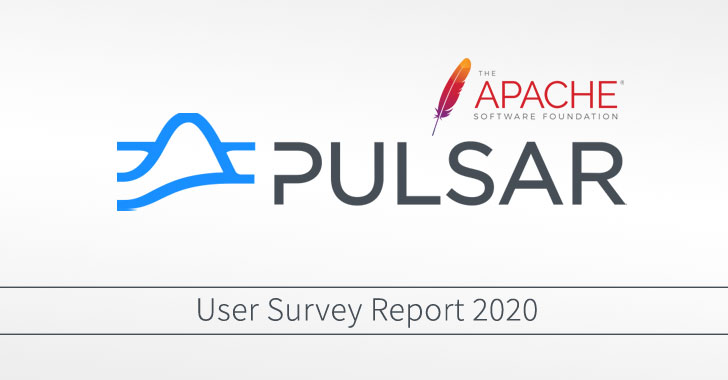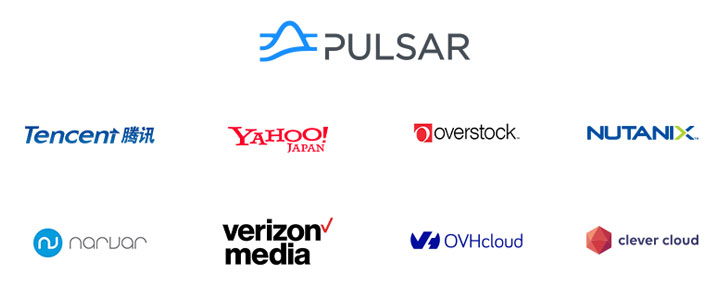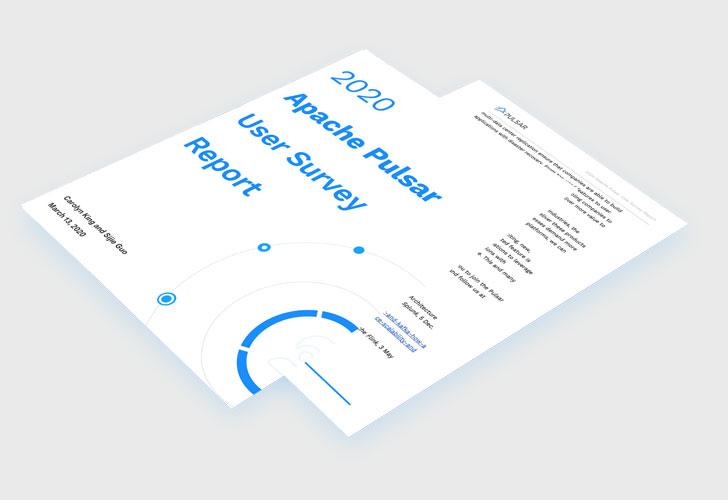For the first time ever, the Apache Pulsar PMC team is publishing a user survey report. The 2020 Apache Pulsar User Survey Report reveals Pulsar's accelerating rate of global adoption, details how organizations are leveraging Pulsar to build real-time streaming applications, and highlights key features on Pulsar's product roadmap.
Apache Pulsar is a cloud-native, distributed open source publish-subscribe (pub/sub) based high-performance server-to-server messaging and streaming system that manages hundreds of billions of events per day. It provides very low end-to-end latency, guaranteed message delivery, zero data loss, and a serverless lightweight computing framework for stream native data processing.
Pulsar adoption has largely been driven by the market's increased demand for real-time, data-enabled technologies. While companies have tried to leverage monolithic messaging systems to build-out real-time offerings, they've hit major roadblocks.
Ultimately, these technologies are not equipped to provide the scale or reliability that mission-critical applications require.
As a result, companies have sought-out Apache Pulsar for its cloud-native, distributed messaging, and streaming platform capabilities. From asynchronous applications to core business applications to ETL, companies are increasingly leveraging Pulsar to develop real-time applications.
Pulsar has received global adoption from major technology companies such as Verizon Media, Narvar, Overstock, Nutanix, Yahoo! JAPAN, Tencent, OVHCloud, and Clever Cloud, who rely on its ability to deliver on performance, scalability, and resiliency.
As the Pulsar project and community garner increasing attention, we're excited to share the 2020 Apache Pulsar User Survey Report.
In the 2020 Apache Pulsar User Survey Report, we hear from 165 users and learn how their companies are leveraging Pulsar's cloud-native, multi-layer design architecture, built-in multi-tenancy, and multi-cluster replication, to build scalable real-time offerings.
This report details insights and use cases on how organizations are deploying Pulsar today.
The report also reveals Pulsar's top-used features, its most popular applications, and how it is delivering scalable, reliable, real-time streaming solutions for organizations. In this quotation from Qiang Fei, Tech Lead for Tencent, we see how one organization is leveraging Pulsar to improve their offering:
From its built-in multi-tenancy, which reduces architectural complexity and enables organizations to scale, to its multi-datacenter replication, which allows Pulsar to handle datacenter failures, we see how Pulsar has evolved into a robust and differentiated messaging and streaming platform. The report also reveals some of the community-driven features on Pulsar's product roadmap for 2020 and beyond. To find out more, download the report today.
Join us for the first-ever Apache Pulsar Summit on August 26, 2020, in San Francisco, CA. More details on the Summit to come!
Apache Pulsar is a cloud-native, distributed open source publish-subscribe (pub/sub) based high-performance server-to-server messaging and streaming system that manages hundreds of billions of events per day. It provides very low end-to-end latency, guaranteed message delivery, zero data loss, and a serverless lightweight computing framework for stream native data processing.
Pulsar adoption has largely been driven by the market's increased demand for real-time, data-enabled technologies. While companies have tried to leverage monolithic messaging systems to build-out real-time offerings, they've hit major roadblocks.
Ultimately, these technologies are not equipped to provide the scale or reliability that mission-critical applications require.
As a result, companies have sought-out Apache Pulsar for its cloud-native, distributed messaging, and streaming platform capabilities. From asynchronous applications to core business applications to ETL, companies are increasingly leveraging Pulsar to develop real-time applications.
Pulsar has received global adoption from major technology companies such as Verizon Media, Narvar, Overstock, Nutanix, Yahoo! JAPAN, Tencent, OVHCloud, and Clever Cloud, who rely on its ability to deliver on performance, scalability, and resiliency.
As the Pulsar project and community garner increasing attention, we're excited to share the 2020 Apache Pulsar User Survey Report.
In the 2020 Apache Pulsar User Survey Report, we hear from 165 users and learn how their companies are leveraging Pulsar's cloud-native, multi-layer design architecture, built-in multi-tenancy, and multi-cluster replication, to build scalable real-time offerings.
This report details insights and use cases on how organizations are deploying Pulsar today.
The report also reveals Pulsar's top-used features, its most popular applications, and how it is delivering scalable, reliable, real-time streaming solutions for organizations. In this quotation from Qiang Fei, Tech Lead for Tencent, we see how one organization is leveraging Pulsar to improve their offering:
"Pulsar provides us with a highly consistent and highly reliable distributed message queue that fits well in our financial use cases. Multi-tenant and storage separation architecture design greatly reduces our operational and maintenance overhead. We have used Pulsar on a very large scale in our organization, and we are impressed that Pulsar is able to provide high consistency while supporting high concurrent client connections." — Qiang Fei, Tech Lead at Tencent.
From its built-in multi-tenancy, which reduces architectural complexity and enables organizations to scale, to its multi-datacenter replication, which allows Pulsar to handle datacenter failures, we see how Pulsar has evolved into a robust and differentiated messaging and streaming platform. The report also reveals some of the community-driven features on Pulsar's product roadmap for 2020 and beyond. To find out more, download the report today.
Join us for the first-ever Apache Pulsar Summit on August 26, 2020, in San Francisco, CA. More details on the Summit to come!
Have something to say about this article? Comment below or share it with us on Facebook, Twitter or our LinkedIn Group.


